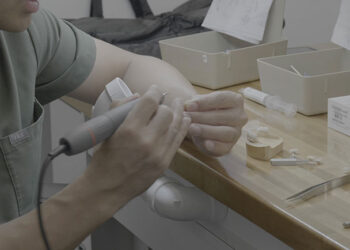Embarking on a career as a dental assistant can be both rewarding and fulfilling. Dental assistants play a pivotal role in dental practices, ensuring smooth operations and providing support to dentists and patients alike. Whether you’re exploring this path for the first time or considering a career change, this guide will walk you through the steps to becoming a competent and confident dental assistant.
Understanding the Role of a Dental Assistant
A dental assistant performs a variety of tasks that contribute to the efficiency of a dental practice. Responsibilities often include preparing patients for treatments, sterilizing instruments, managing patient records, and assisting the dentist during procedures. Effective communication and interpersonal skills are important, as dental assistants frequently interact with patients and team members. They may handle administrative duties such as scheduling appointments and managing billing processes. Understanding the diverse nature of these tasks is essential for anyone considering this career, as it ensures preparedness for the multifaceted demands of the role.
Choosing the Right Educational Path
To become a dental assistant, completing a formal education program is typically required. Many accredited online colleges for dental assistant programs offer flexible learning options that cater to different schedules and learning preferences. These programs usually cover essential topics such as dental anatomy, radiography, and infection control. Depending on the state, some programs may also include hands-on clinical experience to ensure practical skills development. Researching and selecting a program that meets your career goals and state requirements is a key step in your educational journey. Consider factors like program length, cost, and support services when making your decision to ensure you choose the best fit for your needs.
Obtaining Certification and Licensure
While certification requirements vary by state, obtaining a certification can enhance your job prospects and credibility. The Dental Assisting National Board (DANB) offers the Certified Dental Assistant (CDA) credential, which is widely recognized in the industry. To qualify for the CDA exam, candidates typically need to complete an accredited dental assistant program and accumulate a certain number of clinical hours. Some states may have additional licensure requirements, so familiarize yourself with local regulations to ensure compliance. Holding certification not only demonstrates your competence but also shows your commitment to maintaining high professional standards.

Gaining Practical Experience
Practical experience is invaluable in the field of dental assisting. Many educational programs include internships or externships that provide hands-on training in real dental settings. These opportunities allow you to apply theoretical knowledge, develop technical skills, and gain insight into the daily operations of a dental practice. Volunteering or working part-time in a dental office can also help build your resume and establish professional connections that may lead to full-time employment. Engaging in diverse clinical environments can expose you to different specialties and practices, broadening your expertise and making you a more versatile dental assistant.
Developing Essential Skills
Beyond technical proficiency, successful dental assistants possess a range of soft skills. Attention to detail ensures that procedures are carried out accurately and safely. Time management skills help in juggling multiple tasks efficiently, while problem-solving abilities are crucial for addressing unexpected challenges. Moreover, empathy and patience are important when dealing with patients who may be anxious or in discomfort. Effective teamwork and adaptability also play significant roles, as dental assistants must collaborate seamlessly with dentists, hygienists, and other staff members. Continuously honing these skills will make you a valuable asset to any dental team and enhance your ability to provide excellent patient care.
Exploring Career Advancement Opportunities
The role of a dental assistant offers various pathways for career growth. With experience and additional training, you can specialize in areas such as orthodontics, oral surgery, or pediatric dentistry. Some dental assistants choose to advance into supervisory or administrative roles within dental practices, taking on responsibilities like managing office operations or training new staff members. Others may pursue further education to become dental hygienists or dental office managers, opening doors to higher-level positions and increasing earning potential. Exploring these opportunities can help you plan a long-term career trajectory that aligns with your interests and aspirations, allowing you to grow professionally within the dental field.
Becoming a dental assistant is a well-defined path that combines education, certification, and practical experience. By choosing the right educational program, obtaining the necessary certifications, and developing both technical and interpersonal skills, you can build a successful career in dental assisting. This role offers the chance to work closely with dental professionals and provides the satisfaction of contributing to patients’ oral health and overall well-being. The variety of career advancement opportunities allows for continued growth and development in the field. Whether you’re just starting out or seeking to advance your career, the steps outlined in this guide will help you navigate the journey to becoming a proficient dental assistant.





























